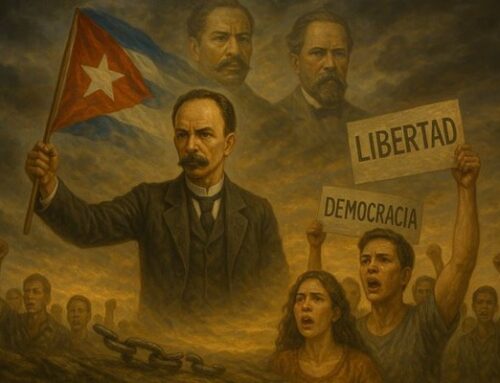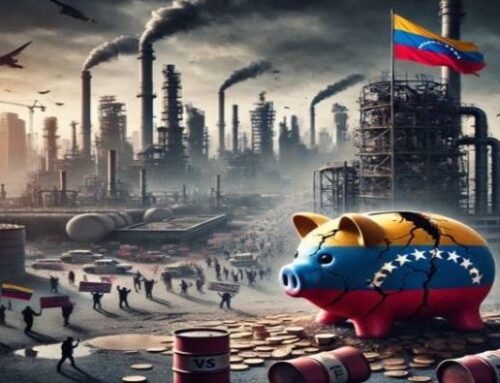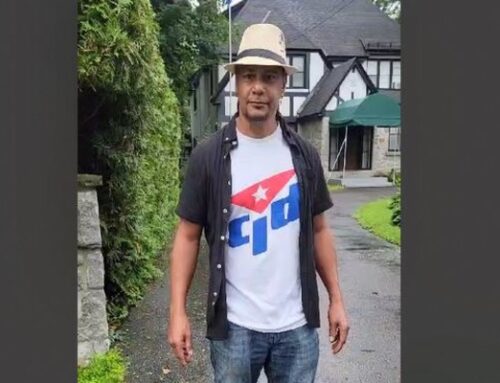Nicaraguan youth have taken to the streets in their country demanding freedom and the end of the regime headed by Daniel Ortega, a former revolutionary who has turned into one of Nicaragua’s wealthiest men, after having betrayed the revolution that toppled the Somoza dictatorship. The Cuba Independiente y Democrática Party, CID, supports the Nicaraguan people in their just and well-deserved demands and condemns the brutality of the repression launched against them by an illegitimate and corrupt regime.
There undoubtedly exists a parallel between Daniel Ortega’s history and that of the Castro brothers, who also betrayed the Cuban Revolution, have ruled Cuba with absolute cruelty for over half a century, enshrined corruption to buy with it their accomplices, live off the Venezuelan narco dictatorship’s subsidy and have sided with capitalism to remain in power in case Venezuela collapses.
At first sight, Cubans could think the protests in Nicaragua take place because nicaraguans are courageous and cubans are domesticated. At least that is the prevailing vision among the exile community, with which cubans abroad justify their lack of action on the ground where they can act, counter and defeat castrism, as venezuelans have done in the international area. Simplifying the defeat or prevalence of a dictatorship in a country and under specific circumstances is much more complex than portraying one population as cowards and another as courageous.
A revolutionary change, whether peaceful or violent, is the result of diverse factors which under specific circumstances combust and release an energy greater than the sum of its parts. It has happened throughout history, we are seeing it in Nicaragua, it is building up in Venezuela and it is highly probable that it will happen in Cuba as well.
Nicaraguans are undoubtedly a courageous people, as they have proved on more than one opportunity, although they endured the Somoza dictatorships since 1934 until July 17, 1979 when the Sandinista Front defeated them. The present upheaval in Nicaragua is the result of injustices and abuses which among other things show differences with the Cuban experience. For example, the Nicaraguan Catholic Church backing democratic opposition and the private sector now backing it too.
A fractured popular power
In an unprecedented event, the streets of Managua and other Nicaraguan cities are the setting for massive popular demonstrations opposing the Sandinista government. No one expected it, this has taken everyone by surprise, and there is no telling where these protests may lead. As in every upheaval of this kind, the reasons must be unearthed so they can be understood.
The fracture is the result of repeated complains on the concentration of power throughout Nicaraguan institutions, precisely the National Assembly, the Judiciary Branch and the Supreme Election Court. Daniel Ortega and his wife, Vice President Rosario Murillo have run Nicaragua as a private farm, distributing privileges and backed by billions of dollars from the Venezuelan dictatorship, itself in crisis.
Everything tends to show that popular support, once the strength of the revolutionary government (1979-1990) and of the present Sandinista administration (started in 2007), is fractured. The university students which are the spearhead of the protest launched a week ago against changes in Nicaraguan social security’s pension system were one of the main pillars of support of the Sandinista Front and President Daniel Ortega.
Unlike the time of the revolutionary government, the present Ortega administration has managed to reach alliances with key sectors that were once its foes, such as the business community and the Catholic Church. Sandinismo’s transformation, distancing itself from its revolutionary past, made the rapprochement with both sectors possible. But within the context of the present government’s erosion, these strategic alliances also weakened. Today the church and business sector have strayed away from the government and openly support the opposition.
Part of the dissatisfaction could be blamed on government social programs that have been impacted by the crisis in Venezuela, whose government is a firm ally of the present Ortega administration.
The fracture worsened when the pension system reforms were announced. A resolution on April 16th by social security authorities increased from 6.25 to 7.0 percent workers’ contributions. It also raised employers’ contributions from 19 to 21 percent. Both raises would be effective as of July 1st and starting in January 2019 they would be raised to 0.5 point per year. Among the changes, what probably caused the strongest dissatisfaction was earmarking five percent from pensions to fund medical assistance and other health expenses.
Ortega’s announcement on April 22, revoking those measures was too late; the protest was kept up and a massive opposition demonstration organized by the Supreme Private Sector Council made its way through Managua.
Henry Briceño, a veteran adversary of the somocista dictatorship and an former member of the Sandinista Front as well as an analyst of the nicaraguan situation wrote on April 16 a precise diagnose of what was going on in the country:
“Each day that passes Nicaragua resembles a pressure cooker. Brutality at INSS (Nicaraguan Social Security Institute) against employers, employees and retired persons. I do not think active contributors, employers and the elderly will accept this bitter reality” and he added: “Many are the factors worsening the situation…no organization was able to encourage the youth, particularly the students whose action unveils their deep resentment against anything smelling of the orteguista government.” Also: “The appalling presidential couple’s decision to use the sandinista youth as a riot force on the street. Even worse, the heartless police actions attacking students claiming their rights. Nicaragua’s youth begins to wake up. ‘Beware…’ Ruben said.”*
This brief outline of the situation in Nicaragua gives us an idea of the diversity of factors involved in a political upheaval which endangers or finishes off a government. Those of us who for some time waited for a liberating movement in Venezuela, have been taken by surprise with one which very few people foresaw and which probably took also by surprise most of those taking part in the protests in Nicaragua.
Those who out of pessimism or conviction believe that castrism is immune to a change that may topple it, could one day realize they were wrong in thinking the Cuban people were domesticated and that it was wrong to criticize from the sides. If the USSR empire collapsed before a world that had never expected such an event, the dictatorship in Cuba is far from being secure. Meanwhile, our best wishes to our brothers and sisters from Nicaragua who deserve our admiration. Rewording the original and beautiful song dedicated to the city of León in that country: “Nicaragua may be felled but never defeated. Long live Nicaragua, jodido!”
*From Rubén Darío’s poem: “To Roosevelt”: “Beware. Spanish America lives! One thousand cubs of the Spanish Lion are loose.”






Deja tu comentario